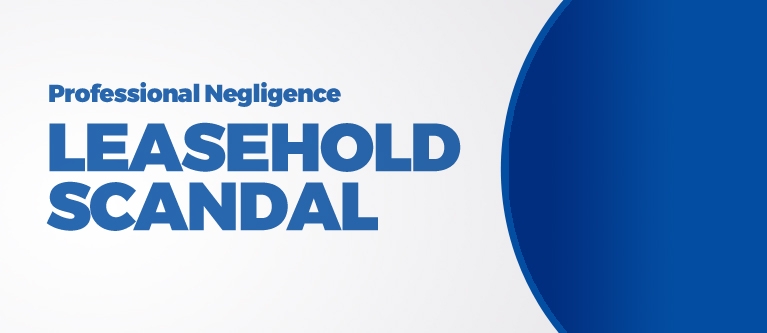The government plans to bring an end to the leasehold scandal on new-build houses, which has resulted in homeowners having to make increasing rental payments on top of their mortgages.
A public consultation will be held which will outline plans to ban the practice as well as dramatically reduce ground rent payments.
According to Communities Secretary, Sajid Javid, there are almost 1.2 million cases of houses on leasehold that may be affected by escalating ground rent costs.
So, what if you have been affected?
If you have purchased a property with a clause in the lease relating to the increasing payments and this was not set out clearly by the solicitor that dealt with the conveyancing then you will need to show a loss.
It would be impossible to assess how long the home owner would have to pay the ground rent for as they may sell the property. However, it is possible to assess the loss in value caused by the punitive rentals charged.
There are easy processes available using expert valuation guidance that can establish the losses. The losses could be the entire value of the house or it could be simply a part of the value depending on the amounts of rent payable.
How easy is it to make a claim and what would it cost?
No litigation is easy but the principles here are quite straightforward. There would be legal fees involved but only if the case is won and only then would it be a percentage of the claim. The percentage of the claim is capped at 25% which is a ‘success fee’ payable to the solicitor. There would be no fees payable at all should the claim fail.
All of these agreements are set out in writing before the claim is actioned. If the case was lost then any fees payable to the other side would be covered by a policy of ‘After The Event Insurance’ (ATE). This is provided on the basis that, should the claim succeed, the insurers recover their agreed premium. The premium will be communicated before you incur any obligation. The insurer’s quote is based on risk, but it isn’t compulsory to have ATE but it is wise to do so; if the claim fails then the ATE insurer will pay all of the other side’s fees and any expert fees or court fees that may have been paid.
But we were let down by solicitors, so why should they trust another?
Here at St Helens Law we strive to succeed. We will spend as long as it takes and apply whatever resources are needed to obtain a good result and provide an excellent service for our clients.
We have an excellent team of professionals who have a breadth of experience in professional negligence cases and obtain a large amount of work by referral from satisfied clients.


